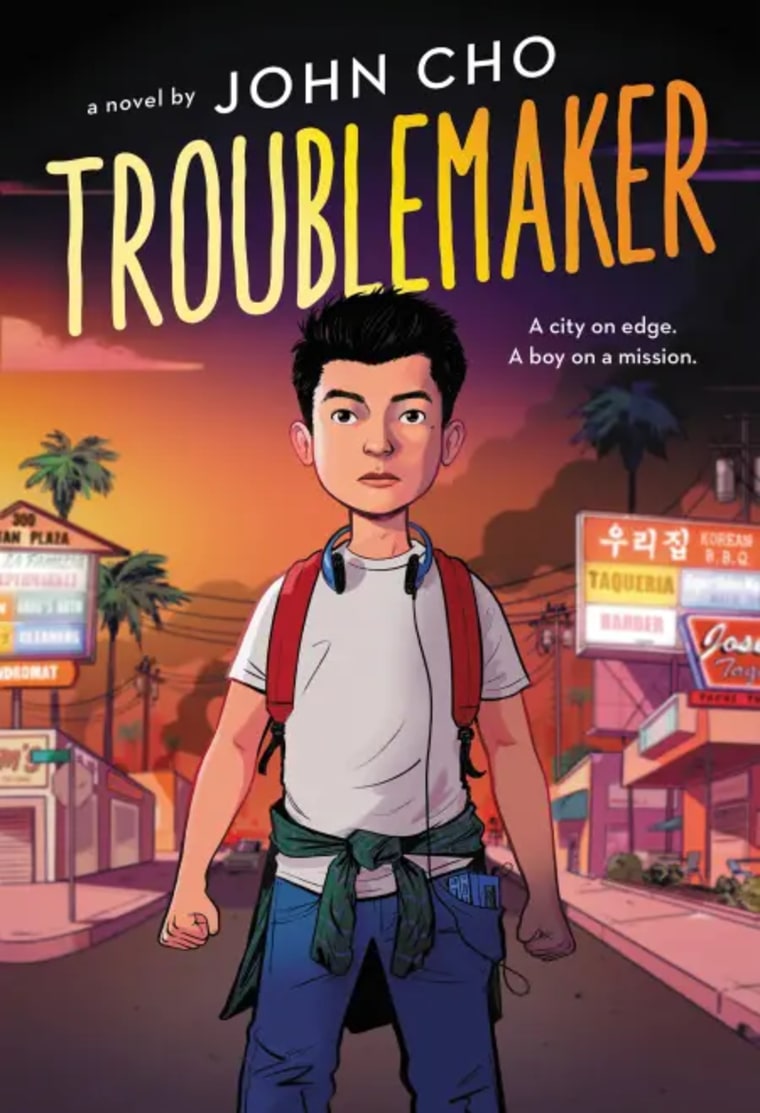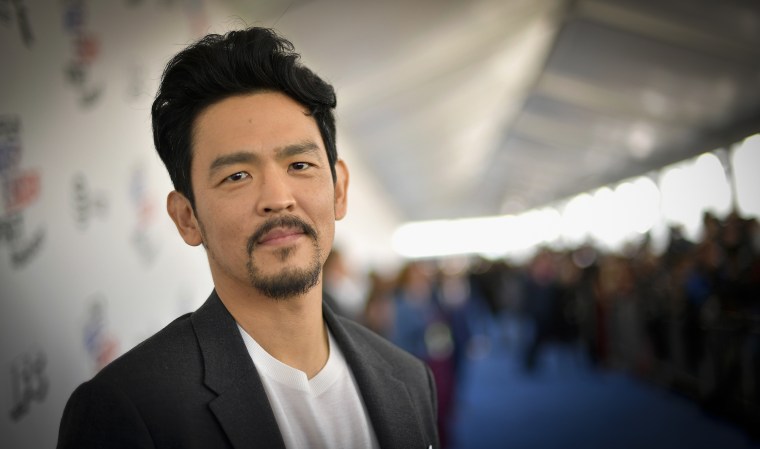Actor John Cho said he didn’t set out to write his debut middle grade novel against the backdrop of the 1992 Los Angeles riots.
“I originally wanted this book to be a mystery, because that’s what I’d read as a kid,” Cho told NBC Asian America. But as he got ready to begin writing, the star best known for his roles in iconic Asian American films like “Better Luck Tomorrow” and the “Harold and Kumar” franchise realized that he had to somehow acknowledge the turbulent and rapidly changing world around him.
It was the pandemic, the murder of George Floyd and the protests that followed, along with the rise of coronavirus-related anti-Asian racism, that all began inspiring the 49-year-old Cho to seriously imagine what it would be like to be a preteen coming of age during a very turbulent and confusing time.
“I was thinking about the L.A. riots, and reflecting on that time, as well,” he said. “Because of that, I started considering what that event would look like for young kids.”

The result is Cho’s new novel, “Troublemaker,” which was released Tuesday by Little, Brown Books for Young Readers. “Troublemaker” tells the story of 12-year-old Jordan, a middle schooler in Los Angeles who is struggling to figure out who he really is. The son of Korean immigrants who run a local store, Jordan often feels torn between his parents' values and their praise of his standout older sister and his own more rebellious nature. Things come to a head on April 29, 1992, when Jordan is suspended from school for acting out.
But as Jordan heads home, he realizes that the city around him is on edge due to both the beating of Rodney King and the shooting of a Black teen girl named Latasha Harlins by a Korean shopkeeper.
Cho said writing this story for the middle grade audience — readers who are roughly 9 to 13 — seemed like a natural fit.
“That’s the age when kids are learning and forming their identities and learning how the world sees them, as well. I think it was around that age that I became very aware of the model minority myth,” Cho, who was born in South Korea and immigrated to the U.S. as a young child, said. “Prior to that, my Asianness was more about being an outsider and not belonging. But it was at that age with school heating up and you’re thinking about college that the model minority myth became a thing in my life.”
While Jordan and his friends never directly experience the violence of the riots in “Troublemaker,” the fear and tensions of the time constantly surround them.
In one powerful scene, Jordan and his best friend are walking through their neighborhood when a policeman stops them and warns them to go home, noting that it was unsafe for kids in general and Asian American kids in particular to be outside.
Cho said he was aware that he was writing about a historical event that may be new to many readers in his target audience. But Cho noted that he also wanted to prioritize creating a gripping story readers could relate to.
“I hope that they just enjoy the story — it’s a fast-paced adventure story, and essentially it’s a story about two kids navigating the city at night,” he said. “I hope that kids get something out of it that way, without it feeling too heavy for them. But if there is an opportunity to ask questions about reading a book like this, it would honor me if this was the excuse to talk about something that was maybe difficult.”
“Troublemaker” is also, at its heart, a story about an Asian American boy who is figuring out who he wants to be — while also figuring out how to fit into his family while still being himself. Because Jordan’s behavior at school often bewilders his parents, he finds himself at odds with his father in particular throughout much of the book. That generational tension, of course, has been a staple of immigrant literature for generations.
As a father of two children himself, on the surface it would seem like Cho had the perfect test group to consult about what children were like right in his own home. But the actor said that was not at all the case.
“My kids are much more well-adjusted than me,” he said with a laugh. “So I had to go back into the troublemaker memory bank rather than use the evidence in front of me.”
Cho said he has a better grasp now on what his parents went through.
“Being a parent is a full-time job, and a job is a full-time job,” he said. “I think on top of that my parents were dealing with poverty and all the kinds of extra issues that come along with being an immigrant. I guess I have a lot more empathy for them now than I certainly did at the time.”
In fact, readers soon learn that all of Jordan’s family members are more complex than they originally appear.
“The title of the book is a reference to Jordan and how he may appear to his father — but it could kind of refer to every single person in the book,” he noted. “Everyone kind of takes turns being a troublemaker.”
